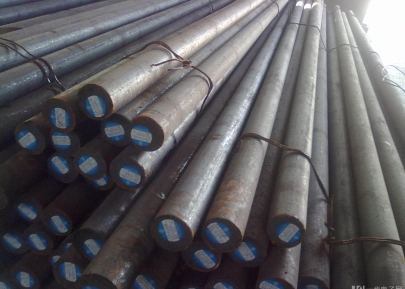Exploring the Versatility of Copper Blocks: Applications, Benefits, and Innovations
Copper has been a material of choice in various industries for centuries. Its remarkable conductive properties, corrosion resistance, and aesthetic appeal make it stand out. Among the different forms, copper blocks are particularly versatile. This article dives deep into copper blocks, touching upon their applications, benefits, and innovations, while giving specific attention to the base molding trim used in construction.
What are Copper Blocks?
Copper blocks are solid blocks made of copper that can be used for a variety of purposes. They come in different sizes and shapes, making them adaptable for use in various applications, from electrical components to decorative arts.
Why Copper Blocks? A Look at Their Benefits
- Excellent Conductivity: Copper boasts the best electrical conductivity among metals, making it ideal for electrical components.
- Corrosion Resistance: With a natural oxidation layer, copper blocks resist deterioration, extending their lifespan.
- Thermal Conductivity: Copper blocks efficiently dissipate heat, making them suitable for various thermal management applications.
- Aesthetic Appeal: The rich color and luster of copper enhance the visual quality of various products.
Applications of Copper Blocks
Being highly versatile, copper blocks find use in numerous applications:
1. Electrical Components
Because of their excellent conductivity, copper blocks are widely used in electrical components like connectors and terminals. They ensure efficient transmission of electric currents, minimizing the risk of overheating or voltage drop.
2. Manufacturing and Fabrication
In the manufacturing sector, copper blocks can be machined into parts for motors, pumps, and other machinery. Their ease of fabrication makes them a popular choice among manufacturers.
3. Construction and Remodeling
In the construction industry, copper blocks are frequently used in plumbing systems. Their corrosion-resistant properties make them suitable for piping and fittings.
4. Arts and Crafts
Copper blocks serve as an excellent medium in the artistic community. Sculptors and metalworkers often use them to create intricate designs and decorative elements.
5. Base Molding Trim
One of the most intriguing uses of copper blocks is in base molding trim. These copper trim pieces add a touch of elegance to interior spaces.
What is Base Cap Moulding Used For?
Base cap molding is used to finish the edges of walls while giving a polished look to rooms. It can also help hide gaps between flooring and walls, giving a seamless appearance. The incorporation of copper in base cap molding elevates its aesthetic appeal while providing durability.
Innovations in Copper Blocks
The field is witnessing several innovations related to copper, making it even more desirable.
1. Advanced Alloys
Modern alloys are being developed to enhance the properties of copper, making it even more effective in specific applications.
2. Surface Treatments
New surface treatment technologies have emerged to further improve the corrosion resistance and durability of copper products, expanding their lifespan and maintainability.
Comparison: Copper Blocks vs. Other Metals
When compared to other metals, copper blocks showcase significant advantages.
| Property | Copper | Aluminum | Steel |
|---|---|---|---|
| Conductivity | Excellent | Good | Fair |
| Corrosion Resistance | Good | Fair | Poor |
| Thermal Conductivity | Excellent | Good | Poor |
Challenges and Considerations
Despite its advantages, there are challenges associated with the use of copper blocks.
1. Cost
Copper can be more expensive than other metals, which may drive manufacturers to select alternatives.
2. Weight
Copper blocks tend to be heavier than aluminum or plastic alternatives, which may be a consideration for certain applications.
User Feedback and Market Trends
Understanding user feedback and market trends can provide valuable insights into the future of copper blocks.
- Rising Demand: The demand for copper products in eco-friendly construction is on the rise.
- User Preferences: Consumers increasingly prefer environmentally sustainable materials, leading to innovations in recycling copper.
Conclusion
In summary, copper blocks exhibit remarkable versatility, making them invaluable in multiple industries. Their inherent properties—such as excellent conductivity and corrosion resistance—along with innovations in design and fabrication, keep them at the forefront of material choices. Whether in manufacturing, construction, or arts, copper continues to shine. Understanding its applications and benefits can lead to more informed choices in various projects.
FAQs
1. Why should I choose copper blocks over other materials?
Copper blocks offer superior conductivity, corrosion resistance, and an aesthetic quality that other materials may not provide.
2. How do I maintain copper blocks?
Regular cleaning with a soft cloth and an appropriate cleaner can keep copper looking new and prevent tarnishing.
3. Can copper blocks be recycled?
Yes, copper is one of the most recyclable materials and can be repurposed without losing its quality.



